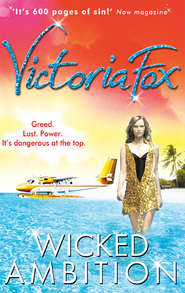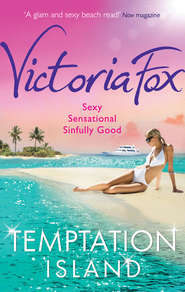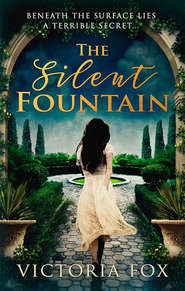По всем вопросам обращайтесь на: info@litportal.ru
(©) 2003-2024.
✖
Glittering Fortunes
Автор
Год написания книги
2018
Настройки чтения
Размер шрифта
Высота строк
Поля
‘The town could come,’ she said recklessly, turned to Charlie for support, whose face was distraught. ‘Lustell Cove. Let’s see what your precious public makes of that! Oh, it’ll be wonderful. You know how easily bored I get when I’m not working. It would be a treat for me to plan something like this, a pet project—’
‘Let’s not get carried away …’
‘It’s not happening.’
The force of Charlie’s interjection plunged the table into silence. It was definite as a slammed door. Cato and Susanna might have opened every aspect of their lives to the masses but that didn’t mean he had to. The gathering wouldn’t be for the cove, or even the couple’s friends. It would inevitably drag an army of paparazzi and press attention with it: presumably that was the point.
Cato assumed everyone wanted the limelight. Charlie didn’t.
But predictably, his brother’s veto spurned Cato to a decision.
‘Let’s consider it, Charles—this might just be a fine idea.’ Next to him, Susanna clapped her hands together and released a squeal. ‘Since when has the old place hosted anything on that scale, hmm? It’d be good for the image.’
‘I don’t care about the image. It’s not reality TV, it’s a family home.’
‘Precisely. So this must be a family decision.’
The men stared each other down.
‘And as the eldest,’ continued Cato, ‘I think you’ll find it falls to me.’
‘You’re never here,’ lashed Charlie, ‘so how can it?’
Susanna went to dispel the fracas. ‘Ooh, look!’ she exclaimed, as a dish of razor clams and langoustines arrived at the table. ‘Aren’t they pretty? I do love pink.’ A light bulb went on above her head. ‘We could have a pink theme—not Barbie pink; prawn pink! Crab pink! Lobster pink! All seafoods pink, inspired by—’
‘Olivia, what do you think?’ Cato turned to their guest.
‘About the pink?’
‘About the party.’
‘It’s not for me to say.’
‘Of course it is,’ said Cato impatiently, ‘if I’ve just asked you. Keep up.’
‘Well, I—’
‘It’s not my job to keep your girlfriend entertained,’ interrupted Charlie.
Cato drew a sharp intake of breath. ‘Neither was it mine to entertain yours,’ he returned. ‘Strange how she didn’t seem to object.’
The table fell into a long and excruciating quiet.
Eventually, Charlie spoke. ‘You forget yourself.’
He pushed his chair back. Without another word he threw a stash of bank notes into the middle of the table, pulled on his jacket and walked away.
His brother’s voice chased him from behind, ripe with evil glee.
‘Not to worry, darling,’ Cato said. ‘We’ll send out invitations later this week. Never mind the decade, it’ll be the party of the century—just you wait and see.’
CHAPTER NINE (#ulink_4bbf2210-554b-5768-9ed3-b8c1c6a6de4d)
SUSANNA WOKE AT one a.m. with the most formidable stomach cramps, her belly growling and gurgling as if it were about to explode. Cato’s side of the bed was empty, the blankets pushed back and the imprint of his body fresh on the sheets.
As she staggered to the bathroom, all she could see were those horrid slithery oysters grinning back at her. She retched over the porcelain bowl. Why oh why did she insist on trying them? After a weak bout of spitting and weeping, she crawled on all fours back into the bedroom, a pitiful shadow, and slid beneath the covers.
It was utterly freezing. Had Cato left a window open? Susanna forced herself to investigate, her nightdress shining white as she staggered to the panes, imagining how she might look from miles away: a lonely ghost belonging to some bygone era, Victorian perhaps. The drapes were musty and thick, and when she drew them the grounds of the estate gleamed before her, impossibly still and as quiet as a painting. A river of star-glow spilled across the lawns, snaking between giant trees whose hulking frames were black as crows. The cherub in his pond, youth everlasting, sang a silent song to the sky. An owl hooted in the distance, a low, melancholy call.
Darting back to bed, she pressed a hand to her forehead. It was clammy and hot. The four-poster was lumpy, pockets of air and knotted springs in the fabric beneath, as if she were lying on a slab of her own distressed intestines. She gripped the sheets up to her chin and watched the door hopefully, waiting for Cato to return. Perhaps he could fix her a sparkling water: carbon was the thing for nausea.
Several minutes passed. Susanna’s teeth chattered with cold. Through the curtains a milky ribbon of moonlight threaded into the room, the world outside so quiet it was deafening, and she cursed the damp walls and draughty windows that made everything so damn Baltic the whole time—oh, to be in her condo in Malibu, sunbathing by the pool! Though she hadn’t broached the subject with Cato, she couldn’t understand why he didn’t just sell off one of his cars—he scarcely drove the Porsche, for instance—and solve Usherwood’s heating problem once and for all. Did his conflict with Charles really run that deep? Was his refusal to help more than a proud conceit; was it that as far as he was concerned, the sooner Charles froze to death in here the sooner he could step in and reign supreme?
She’d had no idea that Usherwood was in such a state. Cato holding back when he could so easily make a difference spoke volumes. Susanna remembered a drunken litany he had delivered last year.
The golden boy isn’t so golden now, is he? If Daddy could see what a failure he’s become, then he’d come running. He’d come begging me for the money: he’d pay me some attention, then, wouldn’t he?
It was a shame there had been such a spectacular falling-out over supper. Cato had been in a black mood when they’d returned, tossing her to the floor, unbuckling his trousers and demanding sex. Any other time she would have been desperately turned on by it, but tonight she had felt too queasy.
She hoped he wasn’t sulking. She vowed to compensate for it with an early morning blowjob, provided her gag reflex had settled by then.
With any luck the party would get things back on track, Susanna decided, and as she envisaged the revelry, the paupers’ gasps as they were led into the ballroom (which despite its raggedness was clearly where they had to have it) and the creativity she could unleash on the decorating process, she instantly felt better. Parties brought people together, didn’t they? Perhaps Cato and Charlie could use it as a bridge over their troubles, rendering Susanna not just a consummate hostess but also a saintly peacemaker, like Jesus, or the Pope, or a far younger and hotter Mother Teresa.
She was considering how this unification might also prompt Cato into the long-awaited proposal when she heard a short, high-pitched yelp coming from the far reaches of the house. Or had it come from outside? She couldn’t tell.
Her heart thundered in her chest. It came again, this time a prolonged whinny.
What was that?
Susanna gripped the bed-sheets. She listened for it, and where first there was silence she began to detect a thin moaning sound, high and reedy, almost a wail.
Her eyes were big as saucers. Her psychic in LA had promised her that this month would be spiritually fertile. Was she tuning into the desperate, drowning cries of a poor servant girl as she sobbed through the house of the dead?
Susanna gasped. Her eyes darted to the clock at her bedside, half expecting it to leap up and fling itself in her face because who was to say this wasn’t a poltergeist? Her ears searched for the sound, honing it to a pinpoint then just when she’d captured it away it would fly, offering up a moment’s respite before resuming its grisly song.
Perhaps it was the wind, a pesky current whistling through the deserted wings.
Perhaps it was a television, or a radio—? No, it was closer than that.
Perhaps it was a creaky floorboard …
That some heinous phantom was stepping on!
Her chest was about to blow open with all the blood that was hammering through it. She watched the door, convinced the handle was about to turn. Tentatively she extracted herself from the bed, the pains in her stomach all but eclipsed in the shadow of her fear. Her hand was like snow in the darkness, reaching for the door, disembodied as if it didn’t belong to her at all.
On the landing she backed up, forced to choke on her scream when a dour life-sized painting of one of Cato’s grandfathers assailed her vision from the top of the stairs. She crept down the passage, the yowling getting closer. The hall flickered uncertainly, a rich wood smell where the old panels seeped their age; and the framed ancestry of Lomaxes-past lined the walls, expressions shifting and melting in the gloom. Barefoot she padded among their watchful stares, the spectre at the feast.
A ticking clock matched her steps. By the time she reached the winding steps she dared not look behind her.











